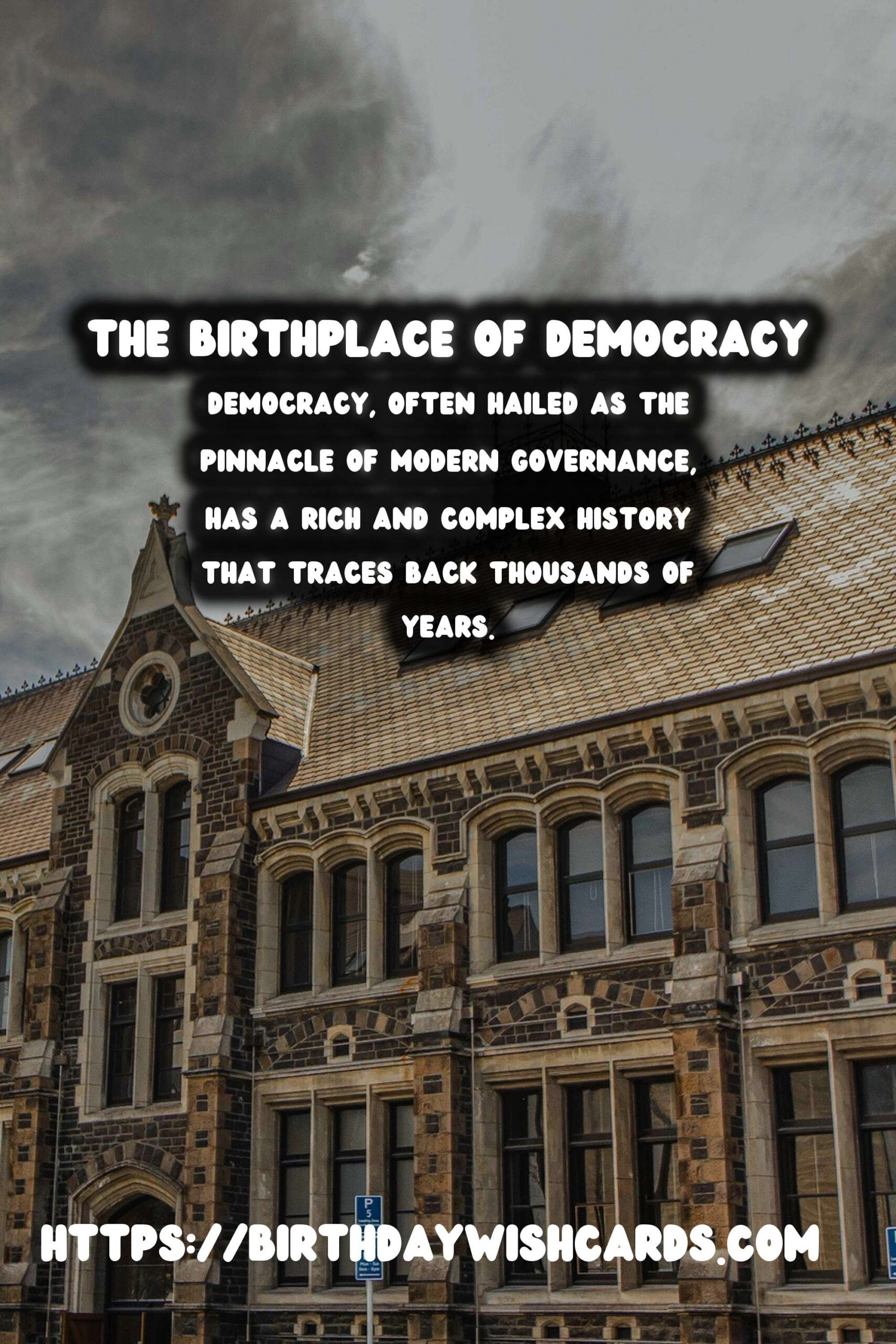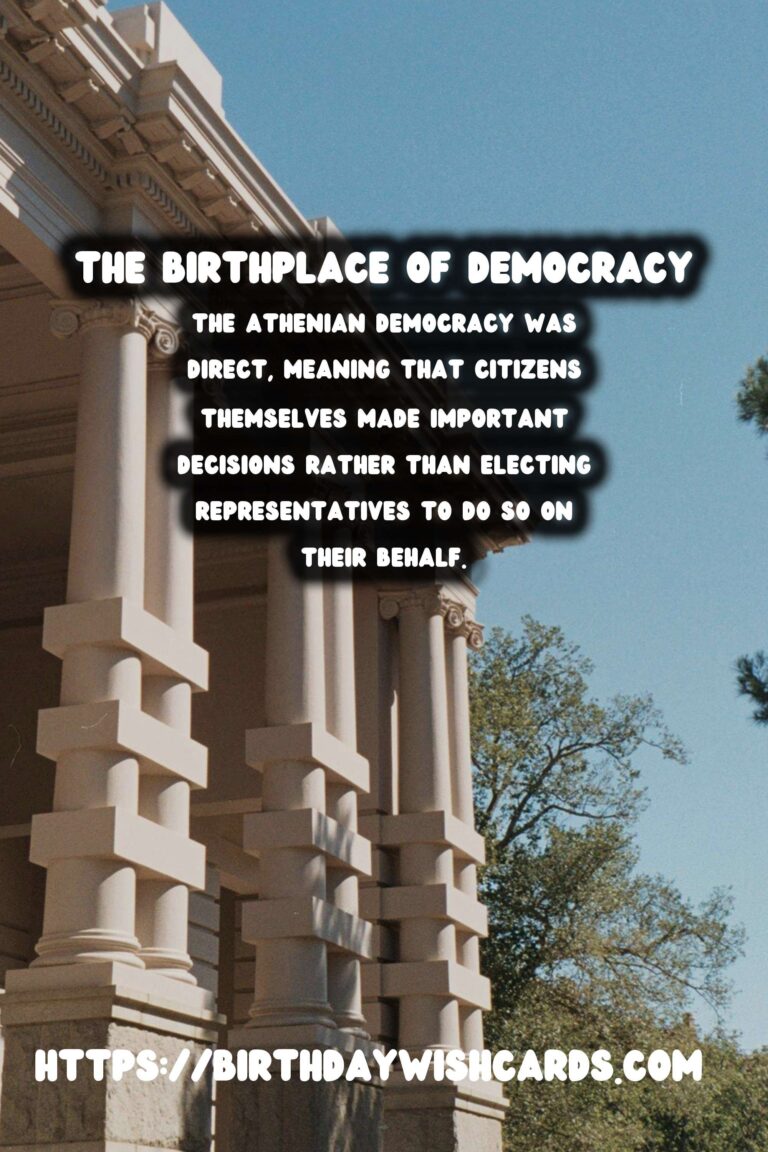
Introduction
Democracy, often hailed as the pinnacle of modern governance, has a rich and complex history that traces back thousands of years. The concept of democracy, which emphasizes the role of citizens in electing their leaders and having a say in the legislature, finds its roots in ancient civilizations. This article explores the origins of democracy, its evolution through the ages, and its current relevance in today’s world.
The Dawn of Democracy
The inception of democracy is closely tied to ancient Athens, where it began as a political reform in the 5th century BCE. The Athenian democracy, as it was known, was direct, meaning that citizens themselves made important decisions rather than electing representatives to do so on their behalf. This form of democracy was revolutionary for its time, laying the groundwork for future democratic governments. However, it was not without its limitations; participation was restricted to male citizens, excluding women, slaves, and foreigners.
Democracy Through the Ages
After the fall of the Athenian democracy, the concept lay dormant for centuries, eclipsed by the rise of monarchies and empires. It wasn’t until the Enlightenment in the 18th century that democratic ideas began to resurface, inspiring the emergence of modern democratic systems. Thinkers like John Locke and Jean-Jacques Rousseau advocated for popular sovereignty and individual rights, planting the seeds for revolutions that would ultimately lead to the establishment of democracies around the world.
The American and French Revolutions played pivotal roles in popularizing democratic ideals. The United States Constitution introduced a system of representative democracy that balanced power across different branches of government. Meanwhile, the French Revolution fought against aristocratic privilege and heralded the idea of equality for all, further cementing the importance of democracy in modern political thought.
The Spread of Democracy
By the 20th century, democracy had become a prevalent form of government across many nations. The end of World War II marked a crucial turning point, as countries devastated by war sought stability through democratic governance. The formation of international organizations, like the United Nations, promoted human rights and democratic principles across the globe.
While democracy flourished in some regions, it faced challenges in others. The Cold War era saw a clash between democratic and authoritarian ideologies, yet the eventual fall of the Berlin Wall in 1989 signified a victory for democratic ideals. Formerly authoritarian regimes began embracing democracy, indicating a global shift towards popular governance.
Current Relevance of Democracy
In today’s interconnected world, democracy remains highly relevant, but it also faces new challenges. Technological advancements have transformed how citizens engage with their governments, enabling greater participation through digital platforms. Yet, these advancements also pose threats such as misinformation and cyber interference.
Furthermore, contemporary democracies encounter issues such as political polarization, voter apathy, and the influence of money in politics. There is a growing need to adapt democratic systems to be more inclusive, resilient, and responsive to the needs of all citizens.
The Future of Democracy
As we move forward, the future of democracy hinges on how effectively we address its current challenges. It necessitates a commitment to enhancing civic education, ensuring media literacy, and fostering inclusive political environments. Innovations in governance, like digital democracy and participatory budgeting, demonstrate promising avenues for revitalizing democratic institutions.
Ultimately, democracy’s evolution is an ongoing process that requires vigilance, adaptation, and an unwavering commitment to the principles of liberty, equality, and justice.
Conclusion
From its birth in ancient Athens to its complex role in contemporary society, democracy continues to shape our world. Understanding its history, evolution, and the issues it currently faces is crucial for sustaining its promise. As we reflect on democracy’s past and prepare for its future, we are reminded of its fundamental importance: giving voice to the people and upholding the ideal of government by the people, for the people.
Democracy, often hailed as the pinnacle of modern governance, has a rich and complex history that traces back thousands of years. The Athenian democracy was direct, meaning that citizens themselves made important decisions rather than electing representatives to do so on their behalf.
#Democracy #History

